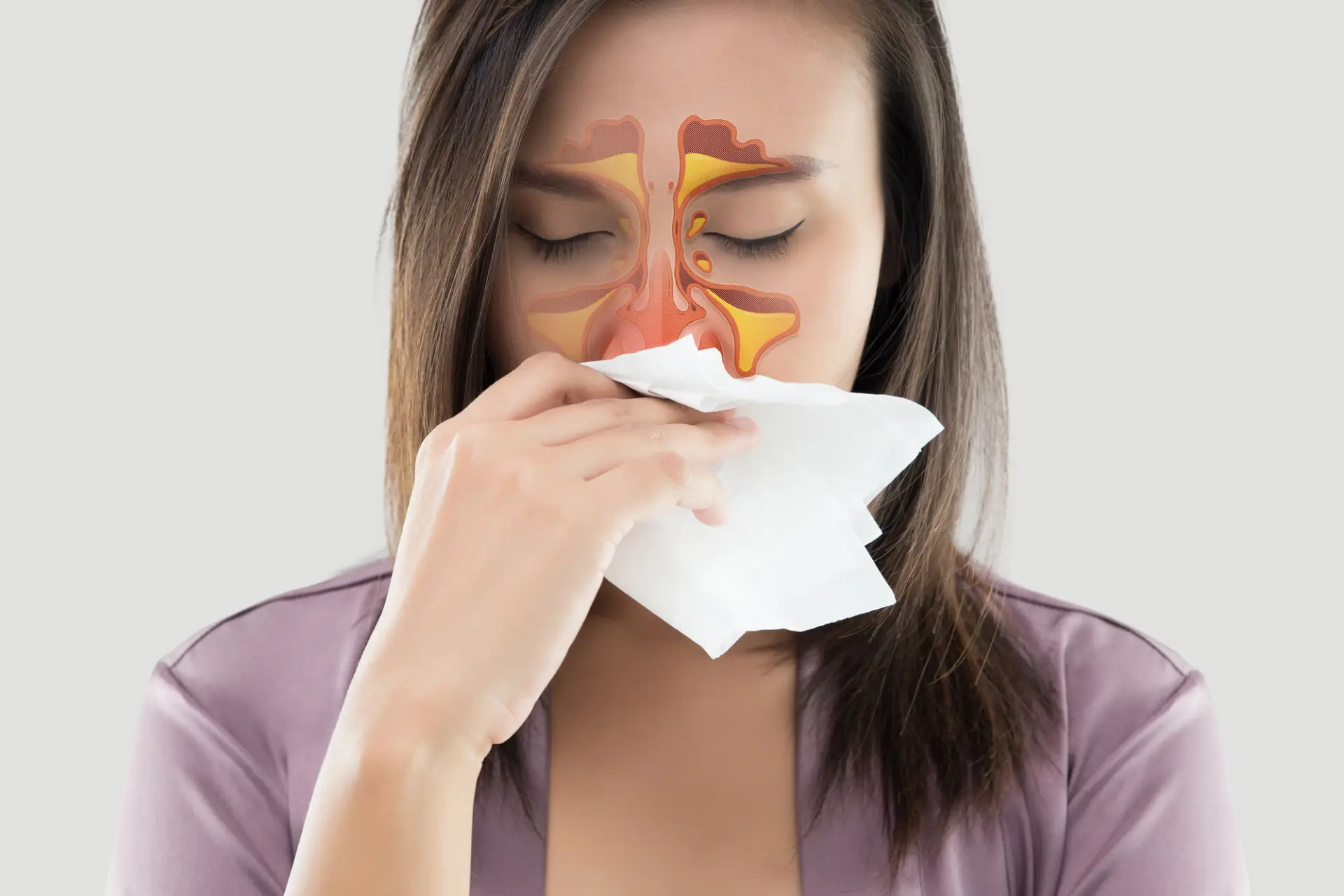Definition of allergies and sinus issues
Allergies are a common condition that occurs when the immune system overreacts to a usually harmless substance, such as pollen or dust. Allergies can cause various symptoms, including sneezing, coughing, watery and itchy eyes, and nasal congestion.
Sinus issues refer to problems with the sinuses, which are air-filled spaces in the skull that produce mucus and help to humidify the air we breathe. Sinus issues can cause symptoms such as nasal congestion, runny nose, headaches, and sinus pressure.
Symptoms of allergy and sinus issues
The symptoms of allergies and sinus issues can vary but may include the following:
- Sneezing and coughing
- Watery and itchy eyes
- Nasal congestion and runny nose
- Headaches and sinus pressure
- Fatigue and difficulty sleeping
Common causes of allergy and sinus issues
Allergies and sinus issues can be triggered by a variety of substances, including:
- Pollen from trees, grass, and flowers
- Dust mites
- Mold
- Pet dander
- Certain medications
- Environmental pollutants
Diagnosis and treatment of allergy and sinus issues
To diagnose allergies and sinus issues, a healthcare professional may recommend the following:
Allergy testing: This can help identify the specific substances causing the allergic reaction.
Nasal endoscopy: This procedure involves inserting a small camera into the nasal passages to examine the inside of the nose and sinuses.
Treatment options for allergies and sinus issues may include:
Medications: Over-the-counter or prescription medications, such as antihistamines and decongestants, can help to reduce allergy symptoms. Nasal sprays can help to relieve sinus congestion.
Allergy shots (immunotherapy) can help build immunity to specific allergens and reduce allergy symptoms.
Home remedies: Some people find relief from allergies and sinus issues by using home remedies such as nasal irrigation and humidifiers.
Tips for managing allergy and sinus issues
To help manage allergy and sinus issues, it is important to:
Avoid triggers: Identify the substances that trigger your allergies and try to avoid them as much as possible.
Use air purifiers: Air purifiers can help to remove allergens and pollutants from the air in your home.
Keep windows and doors closed: This can help to prevent allergens from entering your home.
Use allergy-proof bedding: Allergy-proof bedding can help to reduce exposure to allergens while you sleep.
Wear a mask when outside: A cover can help to filter out allergens and pollutants when you are outside.
Conclusion
Allergy and sinus issues are common conditions that can significantly impact a person’s quality of life. There are various treatment options available to help manage these conditions, including medications, allergy shots, and home remedies. It is important to see a healthcare professional for a proper diagnosis and treatment plan to relieve allergy and sinus issues. By following these tips and taking appropriate precautions, you can help to manage your allergy and sinus issues and improve your overall quality of life. Contact us today to schedule an appointment.

